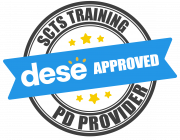Individualized Education Program (IEP) meetings are essential for ensuring that students with disabilities receive the support they need to succeed in school. These meetings involve collaboration between educators, parents, and specialists to create a plan tailored to the student’s needs. However, IEP meetings can also be emotional and stressful for parents and educators alike, and the language used during these discussions can have a significant impact on the outcome. Certain phrases can undermine collaboration, damage relationships, and ultimately hurt the student’s progress. In this blog, we’ll discuss 15 things not to say in an IEP meeting, offering guidance on how to foster positive, productive conversations that benefit the student.
1. “We’ve never done that before.”
This phrase can make parents feel like their concerns are being dismissed or that the school is unwilling to try new approaches. IEPs are meant to be individualized, and what works for one student may not work for another. Instead of shutting down the idea, respond with curiosity. A better way to phrase it would be: “That’s an interesting suggestion. Let’s explore how we can make it work for your child.”
2. “That’s not possible due to budget constraints.”
While school budgets are a reality, it’s crucial not to discuss financial limitations as a reason for denying services in an IEP meeting. The IEP should be driven by the student’s needs, not by financial concerns. If there are genuine constraints, find alternative ways to support the student. You might say: “We’re committed to finding solutions that meet your child’s needs. Let’s explore all our options.”
3. “Your child will never be able to…”
Using absolute terms like “never” can be devastating for parents and counterproductive to the goal of the IEP, which is to help the child achieve their full potential. IEP meetings should focus on the student’s strengths and progress. Rather than placing limits on a child’s abilities, reframe the conversation: “Here’s where your child is right now, and we’ll work together to help them continue to grow.”
4. “That’s not how we do things here.”
IEP meetings are not about maintaining the status quo; they are about finding what works best for the student. Dismissing a suggestion because it’s unconventional or different from the school’s typical approach can create a barrier to collaboration. Instead, say: “Let’s discuss how we can adapt our approach to meet your child’s needs.”
5. “We don’t have the resources for that.”
Similar to discussing budget limitations, talking about resource constraints can make parents feel that their child’s needs are being sidelined. The IEP process should be focused on identifying what the child needs and then finding ways to provide those supports. A better approach would be: “Let’s see how we can work within our current resources or explore external options.”
6. “Your child is doing fine without that service.”
While the school’s perspective on a student’s progress is important, parents may have insights into challenges the student faces at home or outside of school. Dismissing their concerns with statements like this can create friction. Instead, try: “We’ve seen some progress in these areas, but let’s discuss your concerns and see if additional services could support your child’s growth.”
7. “We’re doing the best we can.”
While this may be true, it’s not reassuring for parents who are advocating for their child’s needs. Parents want to know that their child is receiving the best possible education, not just that the school is doing what they can with limited resources. A more effective response would be: “We’re committed to finding the best solutions for your child’s needs, and we’re open to exploring different strategies.”
8. “We don’t think your child needs that service.”
Decisions about services and accommodations should be based on data, not personal opinions. If there’s a disagreement about what services a student needs, it’s important to back up your position with evidence from assessments, observations, and progress reports. Instead of dismissing a service outright, say: “Let’s review the data we have and consider whether additional services might be beneficial.”
9. “That’s not my job.”
An IEP meeting is a collaborative effort, and all team members should be committed to finding solutions for the student. Refusing to take responsibility for a part of the plan undermines the team’s efforts. A more constructive approach would be: “Let’s figure out who can best support that aspect of the plan or how we can divide responsibilities.”
10. “I’m just here to listen.”
Every member of the IEP team should be an active participant in the discussion. Even if you’re not the primary service provider for the student, your input is valuable. Rather than passively sitting in the meeting, offer your insights: “Here’s what I’ve observed and how I think we can support the student in my area.”
11. “That’s too much work for the teachers.”
Parents come to IEP meetings hoping to hear how the school will support their child, not about the burdens on staff. While teachers’ workloads are a valid concern, it’s inappropriate to discuss them in this context. Focus on the student’s needs by saying: “We want to ensure the plan is manageable for everyone involved, so let’s discuss ways to implement it effectively.”
12. “We’ll figure it out later.”
IEP meetings are the time to make concrete decisions about the student’s plan, not to delay important discussions. Avoid leaving parents with uncertainty by saying: “Let’s work together to find a solution today so we can move forward with a clear plan.”
13. “Your child will outgrow this.”
While some students may experience developmental milestones that alleviate certain challenges, it’s not appropriate to suggest that they’ll simply “outgrow” their disability or the need for support. Instead, focus on the here and now: “Right now, this is where your child is, and we’ll adjust their plan as they grow and progress.”
14. “That accommodation isn’t fair to the other students.”
IEPs are designed to provide individualized support based on the student’s unique needs, not to compare them to their peers. Suggesting that an accommodation is “unfair” can undermine the purpose of the IEP process. A better response would be: “Each student’s needs are different, and we’re focused on providing what your child needs to succeed.”
15. “We’ve already decided what’s best.”
IEP meetings are meant to be collaborative, not a place where decisions are presented as a done deal. Parents should feel like equal partners in the process. Instead of presenting decisions as final, say: “Here’s what we’ve been considering, and we’d love to hear your thoughts before making a final decision.”
Fostering a Collaborative IEP Environment:
It’s essential that IEP meetings foster collaboration, mutual respect, and a shared commitment to the student’s success. By being mindful of language and avoiding dismissive or negative phrases, educators can build stronger relationships with parents and create IEPs that truly meet the student’s needs.
IEP meetings are a time for teamwork, where each participant brings valuable insights to the table. Parents offer intimate knowledge of their child’s strengths and challenges, while educators and specialists contribute expertise in teaching and support strategies. When everyone works together, the IEP process becomes a powerful tool for helping students with disabilities reach their full potential.
Conclusion:
Navigating IEP meetings requires care, respect, and a collaborative spirit. The phrases we choose can either build bridges or create barriers between parents and educators. By avoiding these 10+ things not to say in an IEP meeting, you can help create a positive, productive environment that centers on what matters most: the student’s success.
Remember, the language used in IEP meetings is powerful. It shapes relationships, sets the tone for collaboration, and influences the outcomes for students. Approach every meeting with an open mind, a focus on solutions, and a commitment to working together to meet the unique needs of each student. This mindset, paired with respectful and thoughtful communication, will lead to more effective IEPs and, ultimately, better educational outcomes for students with disabilities,







